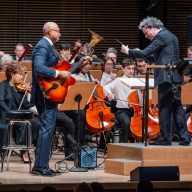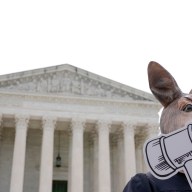VICTORIA, B.C. – Gordon Campbell’s election victory in British Columbia is sending mixed messages of hope and concern to federal and provincial politicians preparing to test their political fortunes in the midst of a job-crushing recession.
Campbell successfully turned B.C.’s sputtering economy into a winning issue at the ballot box, telling voters his proven leadership and business experience were what’s needed to guide the province through rough times and prepare for a recovery boosted by Vancouver’s 2010 Winter Olympics.
The victory gave Campbell and his B.C. Liberals their third consecutive mandate, a rare accomplishment in a province known for routing unpopular premiers.
Prime Minister Stephen Harper and Liberal Leader Michael Ignatieff are likely pondering Campbell’s accomplishment and asking themselves about the prospects of winning politics in poor economic times, Simon Fraser University public policy Prof. Doug McArthur said Wednesday.
“I think the federal Liberals will look at this situation, and the first thing they’ll say is, ‘hey, it’s not so easy to turn this particular recession against a government,”‘ he said.
The Ignatieff Liberals only have to look at Campbell’s B.C. Liberals to see that a governing party can turn a bad economy into a vote generating issue, said McArthur.
“I think the federal Liberals will be giving real pause to wonder whether or not they can make this (recession) into a negative on the Conservatives,” he said. “Then they’ll consider is there a chance the Conservatives can turn this and make it into a positive for them?”
McArthur said the Conservatives stumbled initially on the recession, but Harper has been sounding somewhat like Campbell in recent months.
“Saying we are taking a look at this recession. We are taking action. We have gone reluctantly into a deficit to help us get through.”
He said Harper could take a page right out Campbell’s campaign playbook and say: “Don’t throw me out because of this. It’s not a good time to take those kind of chances.”
In Nova Scotia, where the minority Conservatives have been pitched into an unexpected and tough campaign with the New Democrats and Liberals, Campbell’s victory was greeted warmly by those working on Premier Rodney MacDonald’s campaign, said Jordi Morgan, deputy campaign director.
Morgan said Nova Scotia is dealing with the same issues as B.C., and they expect voters will see a Conservative government as the best to manage the economy.
“We see our party as the best party that can manage the economy, and we’re expecting that people in Nova Scotia are going to respond to that.”
Campbell said Wednesday the depth and length of the current recession will play a large part in the B.C. government’s agenda.
Throughout the campaign, Campbell repeatedly warned voters against taking a chance on a new government during the deep economic malaise.
Campbell expressed confidence that the goals in his budget introduced last February were possible.
“I am still confident, I haven’t had any briefings from any of our finance people that say to me at this point that we’re not going to be able to accomplish the goals we set,” he said Wednesday.
NDP Leader Carole James was not commenting Wednesday but acknowledged Tuesday night that Campbell’s message of experience resonated with voters.
“I think it’s clear the economy was an issue and people felt they wanted somebody with experience who’d been in the premier’s position already,” she told reporters after the poll results started coming in. “The economy did become the issue and I think people were taking a look and felt right now they wanted to continue on with Gordon Campbell.”
British Columbia’s next legislature will look almost exactly like the last one.
When the votes were counted, the Liberals had 49 of the 85 seats and the NDP, 36. At dissolution there were 42 Liberals, 34 NDP and three vacancies in the B.C. legislature. There were six more ridings up for grabs this time around.
The Liberals won 46 per cent of the popular vote to 42 per cent for the New Democrats. In 2005, the Liberals won 46 per cent of the popular to 41 for the NDP.
While the seats changed little, the overall voter turnout was about 50 per cent, and Campbell said that is a concern.
“I think it’s one of the real challenges we all face. It’s one of my disappointments that we had a very low voter turnout,” he said.
















